VET APPROVED

The information is current and up-to-date in accordance with the latest veterinarian research.
Learn more »Click to Skip Ahead
Suppose you’re enjoying an evening stroll around the neighborhood when you look back and discover you’ve picked up a tagalong: an unfamiliar cat. It makes sense that a cat would fall in behind someone they know, but you’ve never seen this kitty before, yet here they are.
So, why do cats follow strangers? In this article, we cover seven typical reasons for this behavior. We’ll also let you know what to do if a strange cat starts to follow you.
The 7 Reasons Why Cats Follow Strangers
1. Curiosity
Ever heard the phrase “Curiosity killed the cat?” Due to their naturally inquisitive tendencies, a cat may follow a stranger simply because they want to know who they are and what they’re doing. Many stray cats were previously owned or lived with humans, making them comfortable enough to follow someone they’d never seen before. In their minds, humans are typically associated with pleasant things like food and ear scratches. Feral cats may not be as familiar with the perks of living with humans, may still follow a stranger because people are an unknown quantity to them.
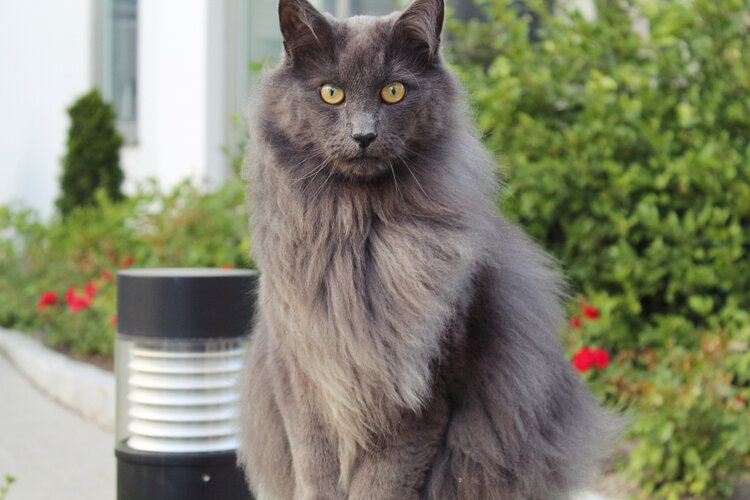
2. Interesting Smell
Cats rely on their sense of smell to help them communicate and learn about the world around them. Because of this, a cat may follow a stranger because the person smells appealing to them. Maybe the cat picks up the scent of the person’s pets at home. Or, probably more frequently, a cat may follow a stranger because they smell like food. That barbecue you had last night? You may not smell it on yourself anymore, but a cat probably can!
3. Hunger or Thirst
Another common reason a cat may follow a stranger is that the kitty is hungry or thirsty. Scrounging up meals can be hard for cats who find themselves alone, especially when they’re used to a human providing their food. Previously owned cats will likely assume a human will feed them and follow a stranger. There’s also the possibility that the cat following you for food does have an owner but decides to try their luck at snagging an extra meal from you.
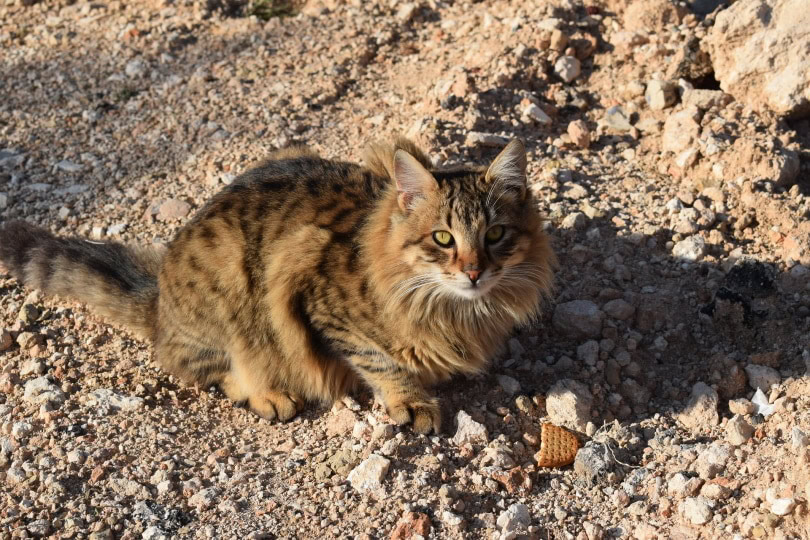
4. Attention Seeking
A stray or owned cat may follow a stranger hoping to get some attention, such as head rubs or a warm lap to snuggle into. Despite their reputation of being indifferent towards their owners, most cats bond closely with humans, according to research. Outdoor cats or stray felines who previously lived with humans may become lonely and latch onto a strange person. Are they hoping to find a new home? Possibly, but don’t assume they don’t already have one (more about this later).
5. Shelter
A cat may follow a stranger, hoping to find a safe place to shelter in cold or rainy weather. Again, this doesn’t necessarily mean they are homeless; it just means that they need somewhere to hide or sleep at the moment. In this case, the cat may be less interested in what you as a person can offer than whether you have a porch or car hood to hide underneath. Cats are smart, and those used to fending for themselves quickly figure out that humans live in buildings that they can also take advantage of.

6. Guarding Territory
Both domestic and wild cats are territorial by nature. They use scent and other communication methods, like scratching, to mark the boundaries of their space. Because of this, a cat may follow a stranger who–invited or not–invades their territory. If you notice the same cat trailing you suspiciously during part of your daily run, it could be because you’re passing through their territory. The city may technically own the sidewalk, but that doesn’t stop the cat from claiming it.
7. Need Help
Finally, a cat may follow a stranger because the kitty is in trouble and needs help. The cat could be sick or injured, for example. Mother cats may also follow strangers, hoping to find a helping hand for their kittens. If an indoor cat escapes or is locked outside by accident, they may follow you for help getting back to their warm couch! If you come across an unfamiliar cat that appears sick or injured, there are some precautions you should take before attempting to interact with it. We’ll talk about those in more detail in the next part of the article.
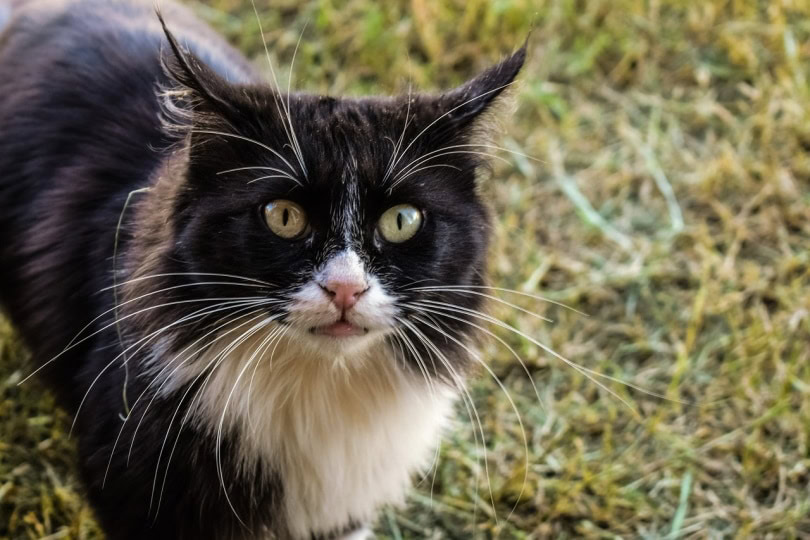
What to Do If a Cat Follows You
Circling back to our scenario from the introduction: you’re out walking, and a cat starts to follow you—now what?
First, don’t assume that because a cat is following you, they also want to approach and interact with you. As you learned, a cat may follow a stranger out of practical, not emotional motivations, such as food or shelter. Feral cats may still be leery of people even if they accept them as a meal ticket. If you attempt to approach the cat following you, don’t be insulted if they run away.
Second, remember that just because a cat is roaming loose and follows you, it doesn’t mean they are homeless. Many outdoor cats range far from their home base and often aren’t shy about following strangers, as we discussed earlier. Indoor cats may also escape or be left outside by accident.
Finally, always use caution when interacting with an unfamiliar cat, even one that seems friendly and lets you approach. Even a good-natured cat can become spooked and scratch or bite. Anytime a cat breaks your skin with a claw or tooth, they could expose you to diseases, most seriously rabies.
Sick or injured cats can be unpredictable too, simply because they are in pain. Your veterinarian or a local cat rescue may be able to help with solutions for humanely catching these animals and staying safe in the process.

Final Thoughts
Before you allow a cat to follow you home and stay there, make every effort to ensure that they don’t belong to anyone first. If they don’t have a collar and tag, your veterinarian or animal shelter can check for a microchip or tattoo. The shelter may also be able to tell you if the cat has been reported missing by the original owners. Cats may follow strangers for the seven reasons we discussed, but they can get lost for many others. To avoid heartache or conflict, make sure the cat truly needs a home before you offer up your own.
Featured Image Credit: Alexandra Giese, Shutterstock
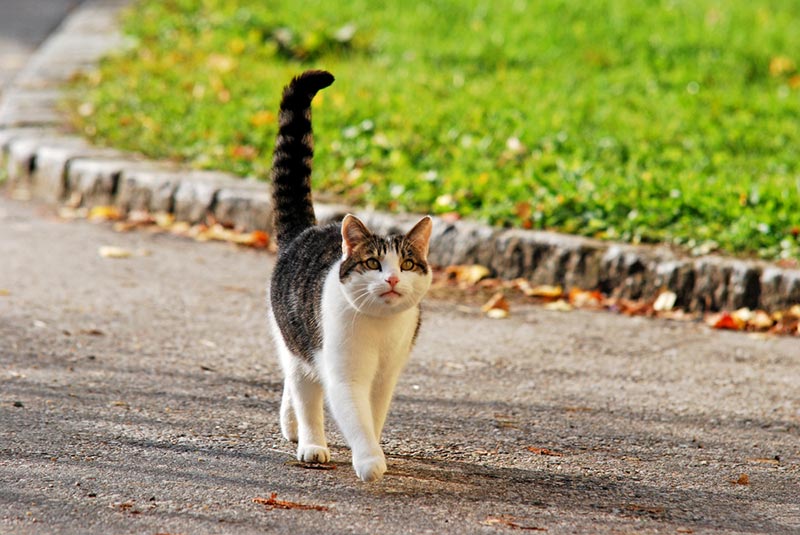






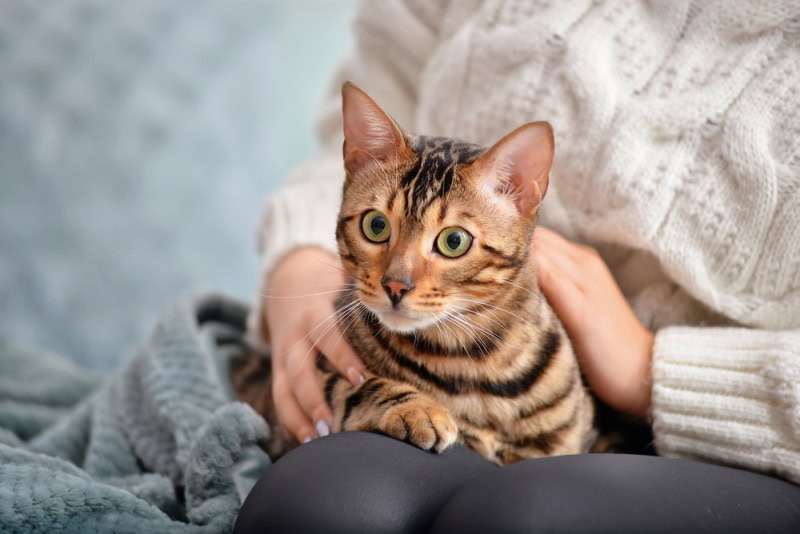
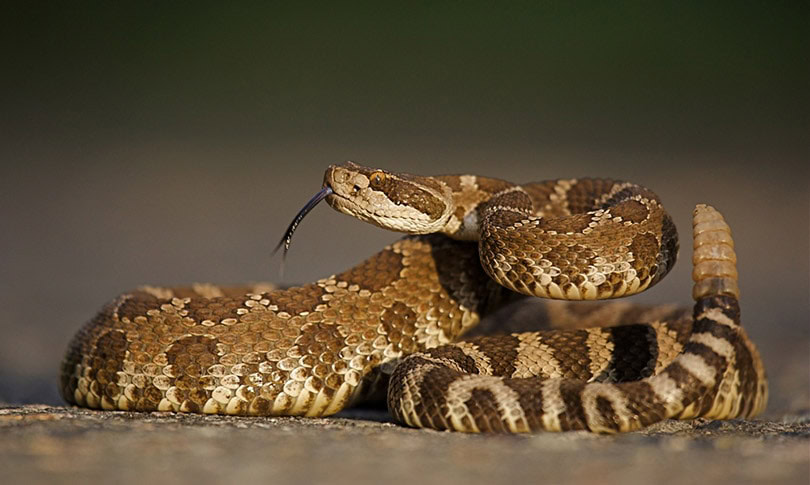
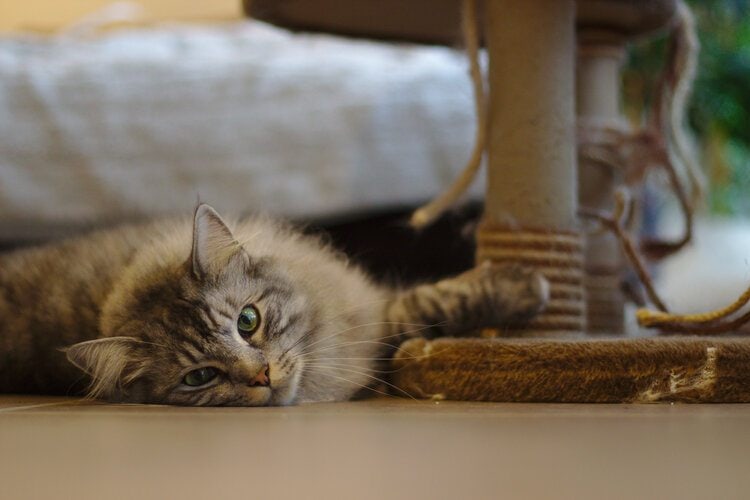



2 Responses
You can tell between a missing, stray and feral cats. True don’t take cat home if you find one walking around. If have food or drink you can offer the cat one. For me they come up to me in my front yard. So just offer food and water let them do what a cat does and roam around in case they did run out.
Hello Katherine, thank you for your contribution. We agree that catching stray or feral cats and forcing them to become indoor cats may not always be the best option for them.